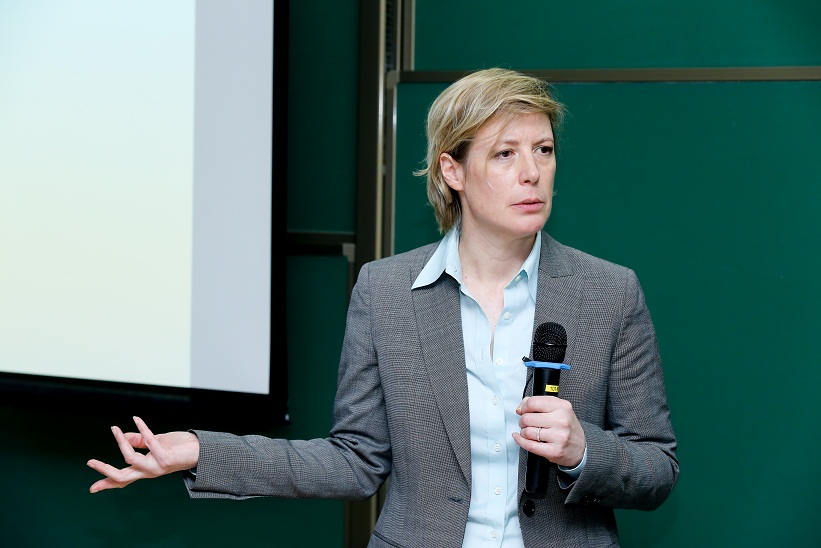Will an Increase in Interest Rates by the U.S. Fed Cause a Financial Crisis in Emerging Markets? Dialogue with S&P's U.S. Chief Economist

Speaker Bio:
Beth Ann Bovino is the U.S. Chief Economist at Standard & Poor’s Ratings Services, based in New York. In this position, she develops S&P’s U.S. economic forecasts and authors the monthly U.S. Economic Forecast, the quarterly U.S. Risks To The Forecast, the weekly Financial Notes and the Weekly Economics Call. Beth Ann has created Industry Drivers reports for analyst research. She is quoted regularly in the press and has appeared on many major television programs. Further, she has written many articles for popular and professional publications.
Before joining Standard & Poor’s in February 2004, Beth Ann spent over ten years doing economic and market research with Sungard Institutional Brokerage, UBS Warburg, and the Federal Reserve.
The Wall Street Journal recognized Beth Ann as the most accurate forecaster of the U.S. economy in 2013.
Beth Ann holds a bachelor’s degree in Economics from the Wharton School at the University of Pennsylvania, a master's degree in International and Development Economics from Yale University and a Ph.D. in Economics from Columbia University.
Event Recap:
The Center for China in the World Economy (CCWE) hosted Beth Ann Bovino, U.S. Chief Economist at S&P, on April 16, 2015 for a lecture titled:“Will an Increase in Interest Rates by the U.S. Fed cause a Financial Crisis in Emerging Markets?” Dr. Bovino addressed the trends on the current labor and financial markets in the United States, and presented an analysis of the factors that may affect the possible rise of interest rates, with the opinion that the U.S. Fed will likely increase interest rates in September of this year.
In the speech, Dr. Bovino pointed out two specific tasks of the U.S. Fed: one is to manage inflation, second, to increase employment and control the long-term unemployment rate between 5.2% and 5.8%. This implies that there is room for a possible interest rate rise by the Fed. The current unemploymentrate is approximately 5.5%, which is within the proper range; moreover, the real estate market is also gradually picking up, and the core inflation is under 2%. Judging from these fundamental factors, Dr. Bovino believes that September will be the best time for an increase in interest rates. At the same time, Dr. Bovino also pointed out two factors that might slow down the Fed’s increase of interest rates, i.e., oil price and the appreciation of the U.S. dollar. The fall of oil prices from $100 to $50 will have an impact on the energy sector in the United States,the largest energy provider in the world; and the appreciation of the U.S. dollar may also reduce the international competitiveness of the export-oriented manufacturing industry.
In terms of the possible impact of the first increase of interest rates by the Fed, Dr. Bovino said that countries in emerging markets, and those relying greatly on the export of energy, e.g., Russia, in particular, will be affected most seriously. For China, the rise of interest rates of the U.S. dollar may also lead to a certain extent of capital flight, for which China must be properly prepared.
The event concluded with a dialogue between Dr. Bovino and the students in attendance on issues ranging from the strike among workers in the U.S. fast-food industry and the achievement of the American Dream of the past and the present, to the impact of the rise interest rates. Questions also included issues such as the income gap in the United States and economic growth rate, etc.




